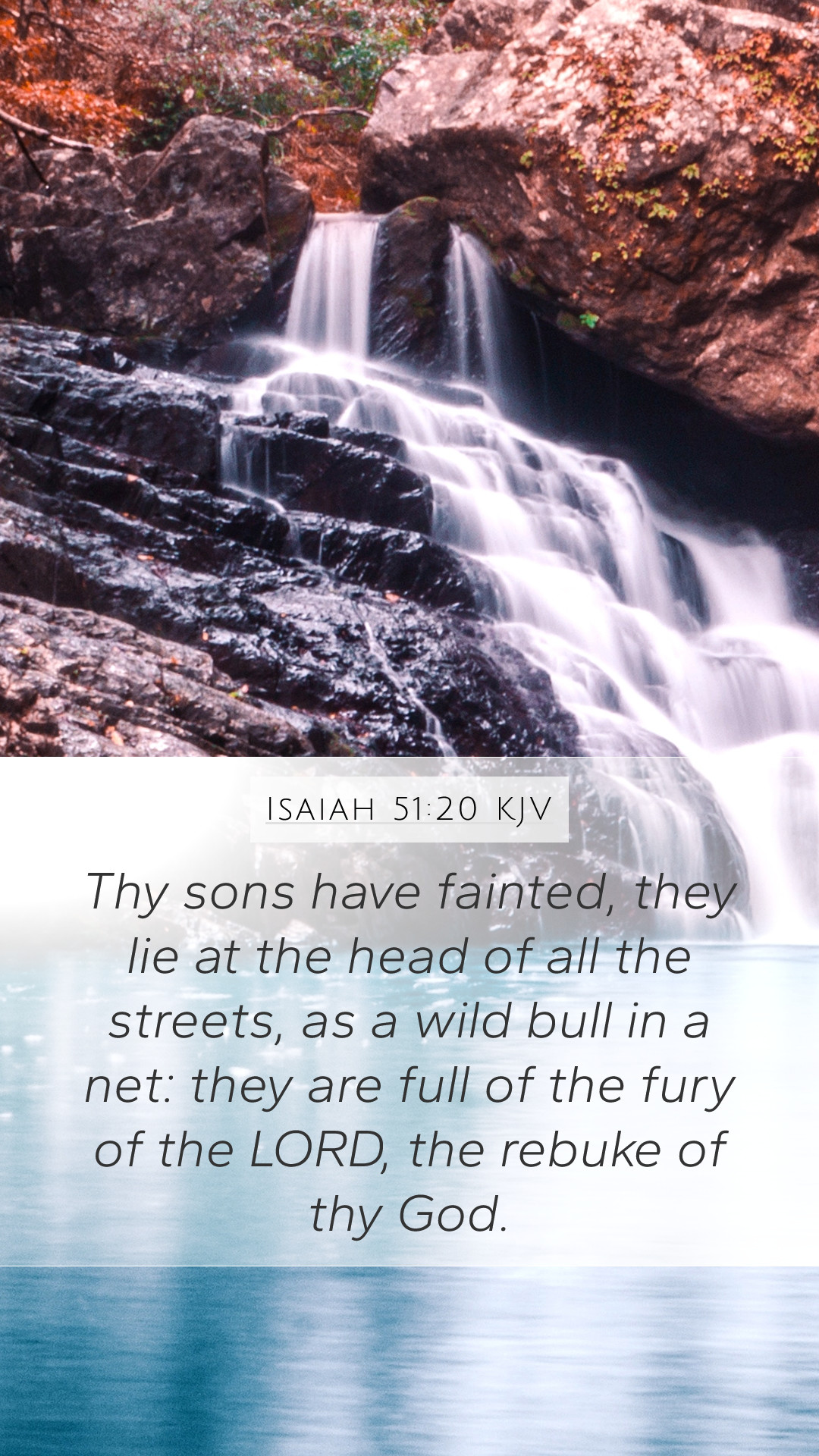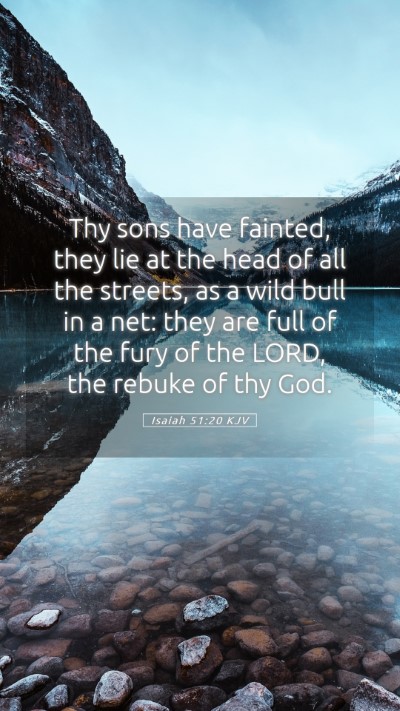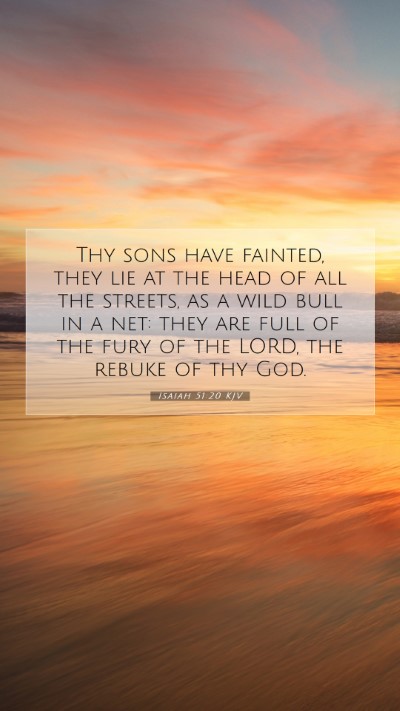Understanding Isaiah 51:20
Bible Verse: Isaiah 51:20 - “Thy children have fainted, they lie at the head of all the streets, as a wild bull in a net: they are full of the fury of the Lord, the rebuke of thy God.”
In this verse, Isaiah paints a stark picture of the state of Israel in exile. The imagery served as a poignant indictment of the spiritual and physical desolation experienced by the people.
Bible Verse Interpretations
This verse reveals deep emotional and spiritual consequences of divine judgment on the nation. The children, representing the people of Israel, are described as fainting and lying in the streets, reflecting hopelessness and vulnerability. Matthew Henry notes that the “wild bull in a net” signifies a lack of freedom and the overpowering nature of God’s wrath that has befallen them.
- Fainting Children: Represents spiritual lethargy and the dire conditions under divine punishment.
- Streets as a Setting: The streets symbolize public disgrace and the exposure of the people to ridicule and suffering.
- Wild Bull in a Net: Suggests being trapped and unable to escape the fierce judgment of God.
Bible Verse Understanding
Albert Barnes provides an analysis that emphasizes the severity of God's judgment. He observes that this imagery is meant to convey both the physical and emotional anguish of the exiled Jews, who felt abandoned and oppressed. Their spiritual state reflects their failure to heed God’s warnings and rectify their ways.
Bible Verse Explanations
Moreover, Adam Clarke elaborates on the concept of divine wrath and the anger of God. The reference to “the rebuke of thy God” signifies that at this moment, God’s corrective measures are being administered. The people’s sufferings serve as reminders for the need for repentance and the importance of returning to God’s grace.
Key Themes in Isaiah 51:20
- Divine Judgment: The consequences of sin and disobedience.
- Spiritual Desolation: The impact of sin on the community and individual.
- Hope in Restoration: Though this passage highlights despair, it also lays the groundwork for the hope of redemption that follows in the context of Isaiah.
Historical Context of Isaiah 51:20
Understanding the historical context behind Isaiah 51:20 is crucial. Written during a time of exile, this prophecy served not only as a warning but also as a reflection of the sufferings that would lead to eventual restoration. Many scholars argue that it heralds the coming hope through God's mercy which would later be revealed in the New Testament.
Practical Applications of Isaiah 51:20
For those studying this scripture, it offers valuable insights into how God responds to the unyielding nature of sin. Individuals can reflect on their own lives to assess areas where spiritual complacency may be present and seek renewal and reconciliation with God.
Applying Bible Verses to Daily Life
This passage also serves as a reminder of the importance of staying fervent in faith amid trials. Bible study groups often discuss such themes to derive encouragement from one another and to build a community of faith focused on maintaining spiritual vitality.
Related Bible Cross References
- Isaiah 54:11-12 - Promise of Restoration
- Jeremiah 14:3-4 - Lamentation of the People
- Lamentations 4:10 - Desolation due to Divine Punishment
Conclusion
Isaiah 51:20 serves as a multifaceted verse that echoes the depth of despair under God’s judgment while concurrently offering the promise of hope through repentance and restoration. Those engaged in bible study insights will find its themes relevant to understanding human frailty and the need for divine intervention.


